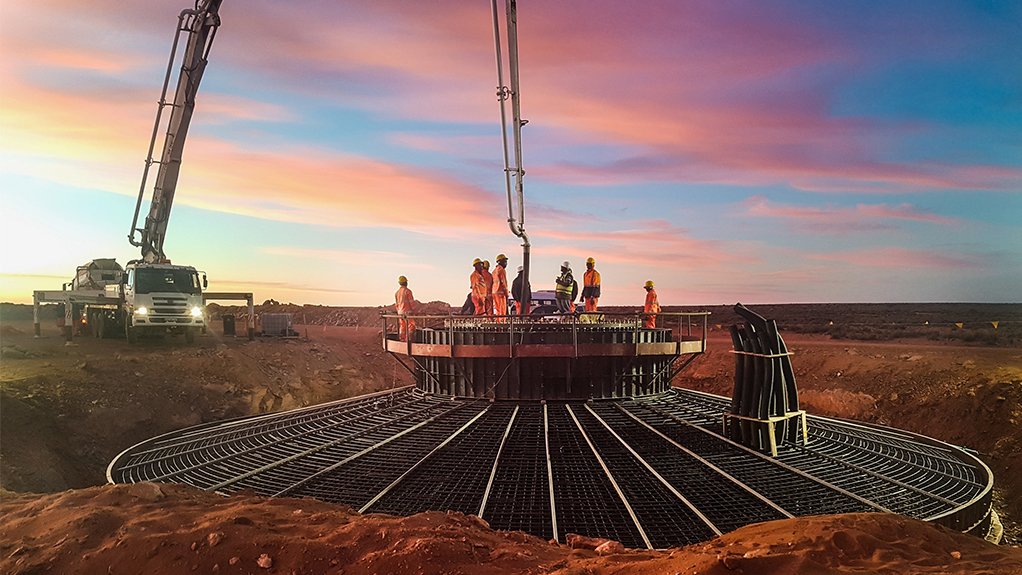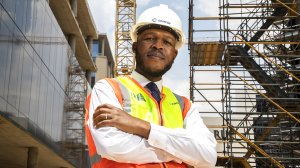While private-sector involvement remains crucial in the delivery of infrastructure projects, diversified infrastructure and services construction company Concor CEO Lucas Tseki says the public sector “still plays a leading role in developing and maintaining resilient and sustainable infrastructure”.
This, however, depends on government’s ability to support the resilient infrastructure, which, in turn, depends on whether government is competent and capable.
Tseki refers to President Cyril Ramaphosa’s emphasis on the importance of developing a capable State and having a credible government.
In this regard, Tseki reiterates that effective systems need to be in place to implement, finance, manage and maintain this infrastructure.
He enthuses that the Presidency is “leading from the front” in ensuring that there is adequate coordination and affirmation of partnerships.
“The partnerships require working with government, the private sector and various finance institutions, and really getting all stakeholders involved in providing government with not only sufficient financing resources but also capable systems, competence and engineering expertise to ensure that we support our State,” Tseki tells Engineering News.
In spite of the prevalent doubt in the country, Tseki is confident that South Africa has a “competent State and competent nation”, which is further evidenced by Ramaphosa’s continued commitment to various civil engineering and infrastructure projects nationally as means of stimulating the economy.
“We have commitment coming directly from the Presidency, demonstrating ownership and accountability. We believe that the sector certainly has a bright future,” Tseki comments.
Hopeful
Despite the obvious fiscal constraints in South Africa, Tseki enthuses that there have been “significant increases” in tender activity in the public and private sector.
“Concor continues to experience this increased level of activity and has, as a result, invested significantly in its estimating capacity to ensure that it can consider and respond to inquiries responsibly,” he says.
He further refers to various construction indices of recent weeks, and notes that these have “reached unseen levels of confidence”, which are demonstrated by increased tender activity in the sector.
In the year to date, Concor has responded to tender activity worth R35-billion.
Tseki is hopeful that this tender activity will materialise in large contract awards for the company.
“We are confident that we have come to the end of the delays, and that Concor will be able to secure those opportunities in the next few months.”
Projects
In the interim, Concor remains involved in several projects such as the East London Sewer Diversion project, valued at more than R1-billion.
Recently awarded by Buffalo City metropolitan municipality, in the Eastern Cape, the scope of work includes the development of a tunnel and associated civil works to allow for the diversion of effluent that flows into the central wastewater treatment works (WWTW) to the new regional Reeston WWTW.
Site mobilisation started last month, and the estimated duration of the project is 30 months.
“We need to be realists, and notice that the projects that are being awarded are normal run-of-the-mill projects that were planned by State-owned entities. This means that a project’s life cycle, from responding to a tender to its eventual award, could take anything between nine to 18 months,” Tseki advises.
He adds that “one needs to have appreciation of the life cycle South Africans operate under” and suggests that this be an important consideration when discussing the state of the construction industry.
Renewable Energy
With the launch of Bid Window 5 of the Renewable Energy Independent Power Producer Procurement Programme, coupled with the Risk Mitigation Independent Power Producer Procurement Programme, as well as Ramaphosa’s announcement of the new 100 MW threshold for embedded electricity generation, the construction sector can likely expect many opportunities to come to the fore.
Tseki adds that Concor has participated in all the bid window rounds, particularly in the wind power space.
Concor handled the construction for 11 of the 34 wind projects constructed to date.
The company is “excited” about participating in the renewable-energy space, and Tseki believes that Concor will “receive its fair share of activity”.
“We are anticipating that government will stick to the timetable, and that once the preferred bidders are announced, Concor will be one of the initial participants that needs to be on the ground before anyone else.”
Limited notices to proceed are expected by February next year, with the groundbreaking for projects anticipated for June 2022.
“Looking at the construction sector, there are bright spots all over the place, particularly in the civil engineering space,” Tseki enthuses.
Edited by: Zandile Mavuso
Creamer Media Senior Deputy Editor: Features
EMAIL THIS ARTICLE SAVE THIS ARTICLE
ARTICLE ENQUIRY
To subscribe email subscriptions@creamermedia.co.za or click here
To advertise email advertising@creamermedia.co.za or click here














